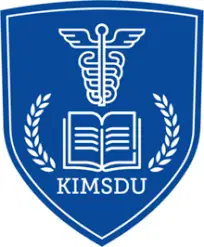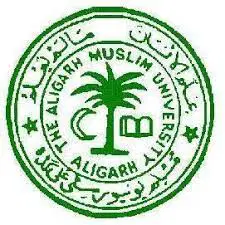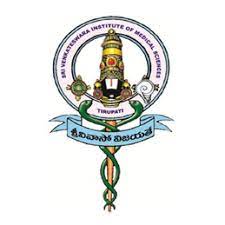There is a large amount of difference between a Ph.D. and an RF. A Ph.D. involves scientific research and a significant amount of coursework. Those pursuing an RF are required to spend an additional two years at the university, while those pursuing a Ph.D. are required to complete five years at the university. The training period for an RF is the equivalent of one year, while that of a Ph.D. is three to four years longer. The training period is essentially the same, from registration to thesis.
The program is available at a variety of institutions, including Brigham and Women's Hospital and the University of Washington. It includes a master's program, a graduate certificate, and a doctorate program. In general, the program includes a combination of theoretical and clinical research. The Ph.D. in Cardiovascular and Thoracic Surgery requires two years of residency training.
Applicants are encouraged to apply to programs that offer clinical practice in their specialty. The Department of Surgery at the University of California San Francisco is home to the Cardiovascular Research Center, one of the top-funded programs in cardiac surgery. Its mission is to find new ways to improve cardiovascular health through research, the development of novel therapies, and education. UCSF is home to some of the world's best cardiovascular surgeons, and the Division of Cardiac Surgery is committed to making the profession a better place to practice.
Ph.D. in Cardiovascular and Thoracic surgery Eligibility
Candidates who want to take admission in Ph.D. must have a post-graduate degree in Cardiovascular and Thoracic surgery and its relevant discipline with at least 55% marks from a recognized university and must have passed the national level entrance examination or university level entrance examination. National level entrance exams like UGC NET / UGC CSIR NET / GATE / SLET or University entrance exams consist of written tests and personal interviews.
The Benefits of Ph.D. in Cardiovascular and Thoracic Surgery
The Ph.D. in Cardiovascular and Thoracic surgery program allows students to conduct research and teach others in a variety of settings. Residents can focus on a particular clinical area, such as adult cardiac surgery or congenital heart surgery. The program also offers an away rotation, where residents can further develop their interests. After completing their residency, they may pursue a graduate degree in a related field.
The curriculum for the I-6 pathway consists of a highly structured didactic core curriculum and simulation training. Residents are required to complete a rigorous academic training program to earn their MD. The Ph.D. in Cardiovascular and Thoracic surgery is based on the Thoracic Surgical Curriculum, which is recommended by the American Board of Medicine. In addition, residents are required to attend conferences and write over 100 peer-reviewed papers.
The Ph.D. program enables doctors to specialize in a particular field. Residents spend six months in thoracic surgery and the rest of their time on the other specialty. During their rotation, residents concentrate on a single specialty. They spend three months each on catheter-based approaches to structural heart disease, followed by three months at Boston Children's Hospital, where they learn about congenital heart disease. The structure of the training program is similar to a preceptorship. The training is conducted in close collaboration with the attendings of the divisions.
The Career and job opportunities for a Doctorate in Cardiovascular and Thoracic Surgery
If you have the passion and desire to work in the field of cardiovascular and thoracic surgery, a Ph.D. program is a perfect way to achieve your goal. The degree program is very competitive, so be prepared to work hard to get in. You will need to have a strong clinical background and a record of research productivity. For those who are pursuing a career in cardiothoracic surgery, a Ph.D. is the best option.
A Ph.D. in this specialty will prepare you to practice thoracic surgery in a variety of settings, including cardiothoracic and pulmonary surgery. You will also have the opportunity to perform procedures related to congenital heart disease. A doctor with this specialty will have an interdisciplinary approach, as well as expertise in research and education. In addition to having a high level of surgical skills, you'll need strong leadership skills and the ability to adapt to changing situations.
Those who pursue a Ph.D. in cardiothoracic and thoracic surgery should be interested in a challenging field of medicine. The rewards are immense and the career is constantly evolving, and doctors can see immediate results of their work. This specialty is also one of the fastest-growing fields in medicine. Therefore, you must be willing to conduct extensive research in the field and read a lot in order to stay up-to-date.
The Future Scope of the Ph.D. in Cardiovascular and Thoracic Surgery
The future scope of the Cardiovascular and Thoracic surgery Ph.D. program is uncertain. The field is dominated by a small number of surgeons with relatively few research funds, and the NIH funds surgical research at a low rate. The field has experienced a 7% decrease in funding from 2003 to 2013; it is unlikely to increase any time soon.
The field of cardiothoracic surgery has experienced rapid growth since the late 1940s, and it has undergone rapid technological changes. It remains an emerging field, advancing as science reveals more about its causes and treatments. Some of the techniques performed in cardiothoracic surgery are heart valve replacement, bypassing narrowed coronary arteries, and repairing or reconstructing a pectus. New technologies like video-assisted thoracoscopic surgery, which allows surgeons to treat some thoracic disorders without opening the chest, and lung surgery, which inflates collapsed lungs and removes abnormal tissues.
The future of cardiothoracic surgery is promising, with an aging population and increased need for surgical services. According to the Society of Thoracic Surgeons (STS), there will be an estimated 530,000 cardiovascular surgeries in Japan by 2035, a 121% increase in caseload per surgeon. And this demand is not expected to fall any time soon. Despite these challenges, the field of cardiothoracic surgery is experiencing rapid growth.
Ph.D. Research Programme duration
The Ph.D. in Cardiovascular and Thoracic surgery course is a minimum of 3 years and a maximum 5 in duration. This depends on the university offering the course.
Fees for research program for Cardiovascular and Thoracic surgery
The average fee for Ph.D. in Cardiovascular and Thoracic surgery degree is between INR 50000 and INR 500000.
 5 Years
5 Years
 PhD
PhD
 Research
Research
















 back
back